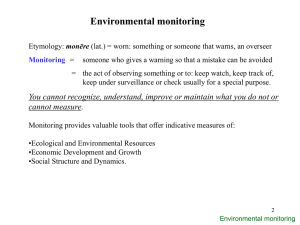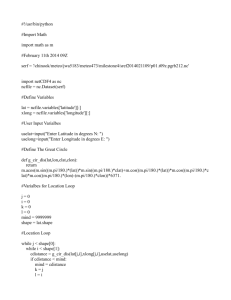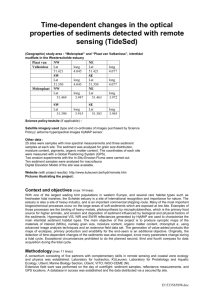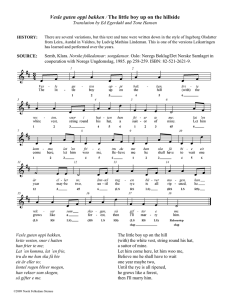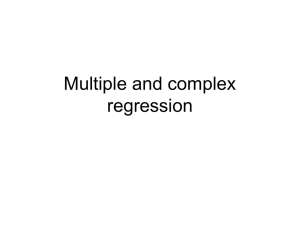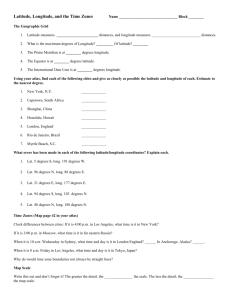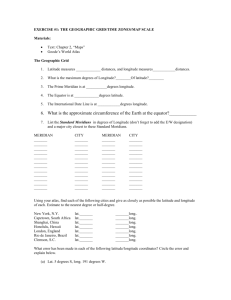PHI 317: Existentialist Thought and Literature Spring 2010 Glossary
advertisement
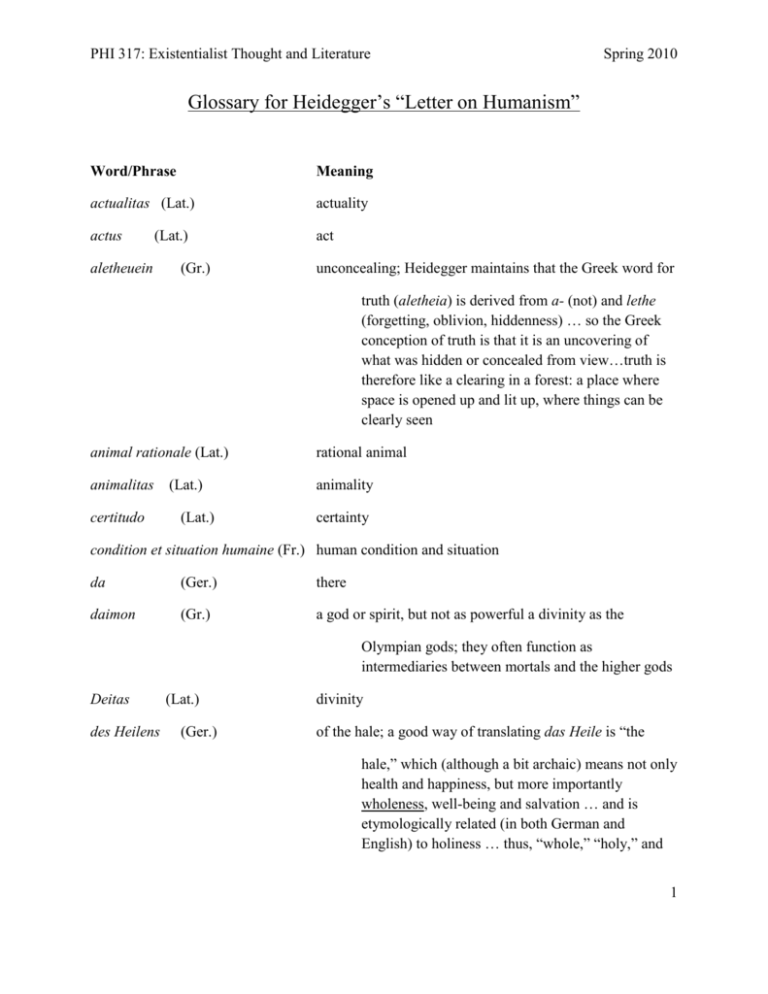
PHI 317: Existentialist Thought and Literature Spring 2010 Glossary for Heidegger’s “Letter on Humanism” Word/Phrase Meaning actualitas (Lat.) actuality actus act (Lat.) aletheuein (Gr.) unconcealing; Heidegger maintains that the Greek word for truth (aletheia) is derived from a- (not) and lethe (forgetting, oblivion, hiddenness) … so the Greek conception of truth is that it is an uncovering of what was hidden or concealed from view…truth is therefore like a clearing in a forest: a place where space is opened up and lit up, where things can be clearly seen animal rationale (Lat.) rational animal animalitas animality certitudo (Lat.) (Lat.) certainty condition et situation humaine (Fr.) human condition and situation da (Ger.) there daimon (Gr.) a god or spirit, but not as powerful a divinity as the Olympian gods; they often function as intermediaries between mortals and the higher gods Deitas des Heilens (Lat.) (Ger.) divinity of the hale; a good way of translating das Heile is “the hale,” which (although a bit archaic) means not only health and happiness, but more importantly wholeness, well-being and salvation … and is etymologically related (in both German and English) to holiness … thus, “whole,” “holy,” and 1 PHI 317: Existentialist Thought and Literature Spring 2010 “healthy” are all related together, and “hale” captures all those meanings die Öffentlichkeit (Ger.) openness, publicness die Rede speech, talk ecstasis (Ger.) lit., “standing outside oneself” (ek=out, stasis=standing… (Gr.) thus when Heidegger talks about ek-sistence, this literally means “putting/placing outside oneself,” thus he is trying to show how existence is really eksistence, namely, being continuously placed outside of itself, never being fixed) ego cogito (Lat.) I think; the phrase attributed to Descartes, cogito ergo sum, (“I think therefore I am,”) hinges on the individual subject’s own private thinking ek- a prefix meaning “out” (Gr.) Entwurf (Ger.) projection; outline; sketch; lit., “what is thrown out there” episteme (Gr.) any disciplined knowledge that can give a rigorous account esse essentiae (Lat.) esse existentiae essentia (Lat.) (Lat.) being of the essence being of the existence essence esti gar einai (Gr.) for there is Being ethos custom, habit; a way of doing things; character (Gr.) existentia (Lat.) existence Geist mind; spirit (Ger.) homo (Lat.) human being, man homo animalis (Lat.) animal man; man in his bestial/animal nature homo barbarus (Lat.) barbaric man homo humanus (Lat.) humane man 2 PHI 317: Existentialist Thought and Literature homo romanus (Lat.) Roman man humanitas humanity (Lat.) humanus (Lat.) human (adjective) l’engagement dans l’action l’engagement (Fr.) L’Être et le plan Spring 2010 (Fr.) engagement in action engagement (Fr.) Being and the situation le plan (Fr.) the situation logos (Gr.) reason; word; rationality; ratio; proportion; argument; sentence; speech; a thing’s intelligibility; the sense a thing makes which we discover through discourse; the practice of that discourse itself nemein (Gr.) to assign, to distribute, to manage noein (Gr.) immediate, non-discursive knowing; reasoning, thinking nomos (Gr.) law; convention; ordering Offenbarmachen (Ger.) to make manifest, lit. to bring something out into the open on (usually “to on”) (Gr.) what is; being ousia substance, being; it traditionally meant wealth, the way that (Gr.) we say that a rich man is “a man of substance” …and thus when Aristotle appropriates the word ousia in his Metaphysics, to his readers it would have overtones of “the richness of something’s being” par (Fr.) by perceptio (Lat.) perception (whether physical sensation or mental insight) physis (Gr.) nature; lit., “what emerges” poiesis (Gr.) possibilitas any kind of making, esp. artistic creation (Lat.) possibility 3 PHI 317: Existentialist Thought and Literature potentia pour (Fr.) praxis ratio (Lat.) Spring 2010 potentiality for (Gr.) activity, engaging things in daily affairs (Lat.) reason; proportion; order renascentia romanitatis (Lat.) resurgence (lit. “rebirth”) of what is Roman res cogitans thinking thing; Descartes’ term for himself as a mind (Lat.) romanitas (Lat.) what is Roman, Roman-ness salus aeterna (Lat.) eternal salvation Sein und Zeit Being and Time, Heidegger’s magnum opus (publ. 1927) Sinn (Ger.) (Ger.) sense, meaning studium humanitatis (Lat.) the study of humanity subiectum subject (Lat.) techne (Gr.) skill, know-how, art (as in the art of debate, not fine art) theoria (Gr.) contemplation, gazing; the sort of deep, non-utilitarian pondering that is simply for the sake of understanding what you are thinking about thigein (Gr.) touching transcendens (Lat.) the transcendent Verfallen entrapment; lit., falling into something ruinous virtus (Ger.) (Lat.) virtue; strength, power zoe (Gr.) life zoon (Gr.) animal, life-form zoon logon echon (Gr.) animal possessing language; animal capable of reason (lit., the animal that has logos) 4
